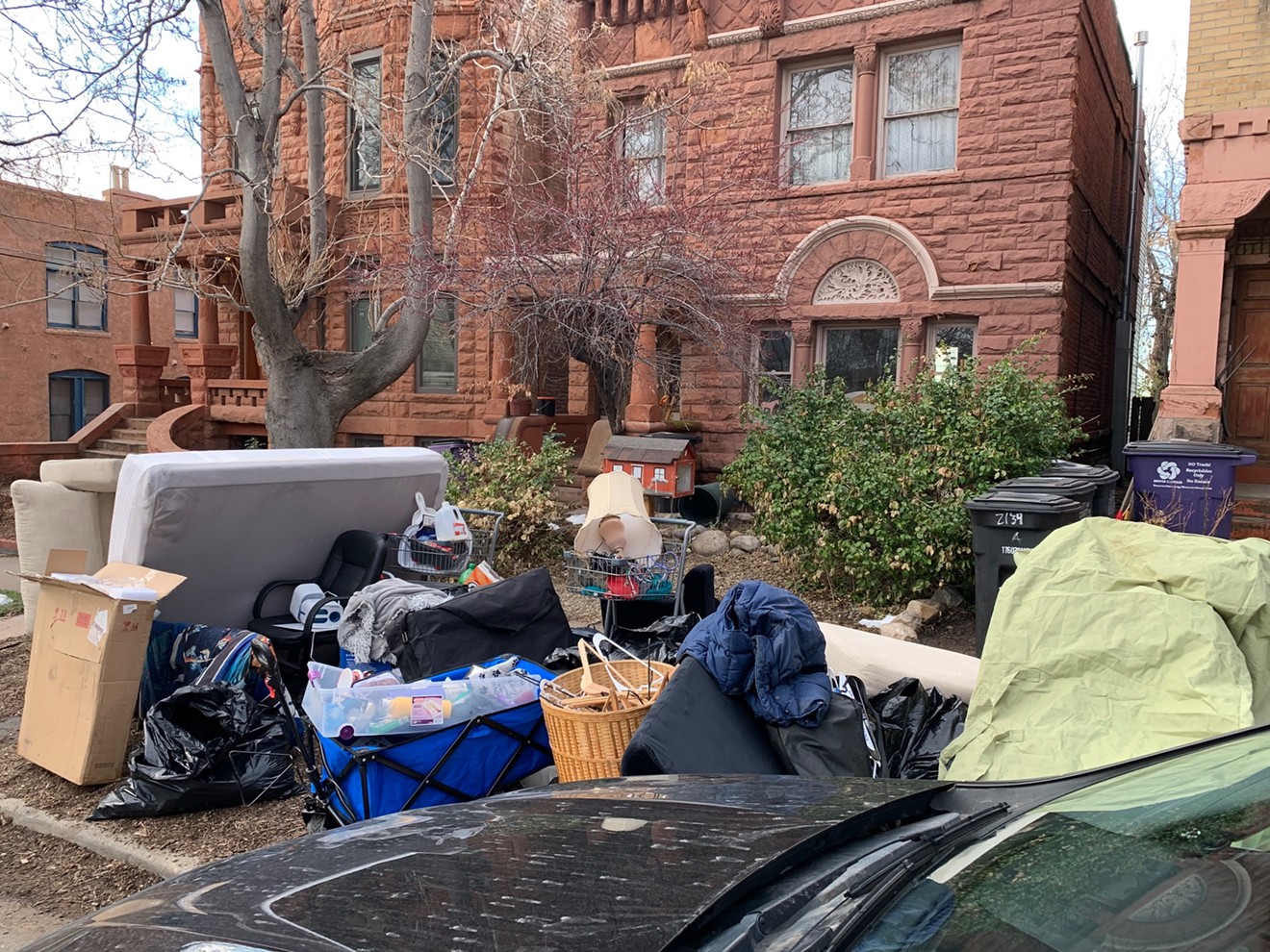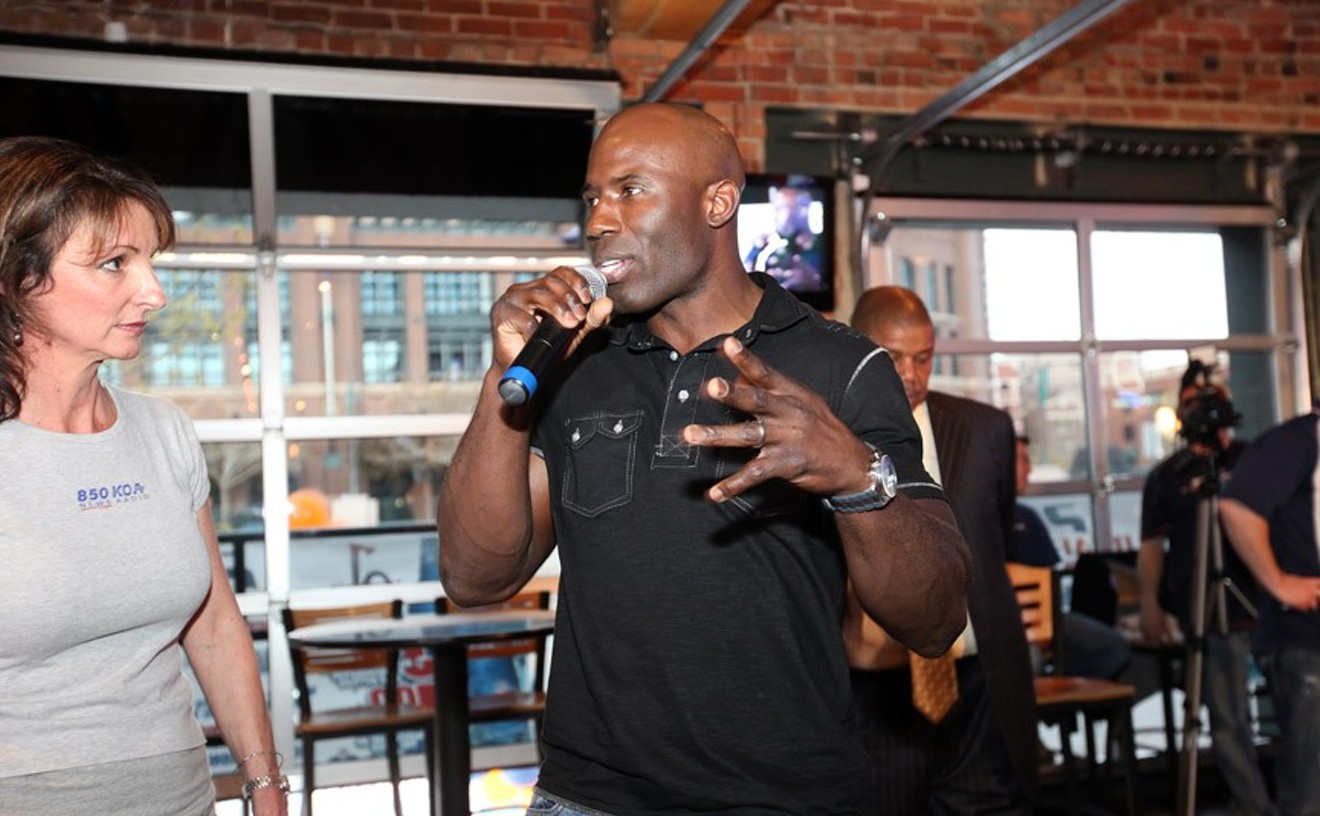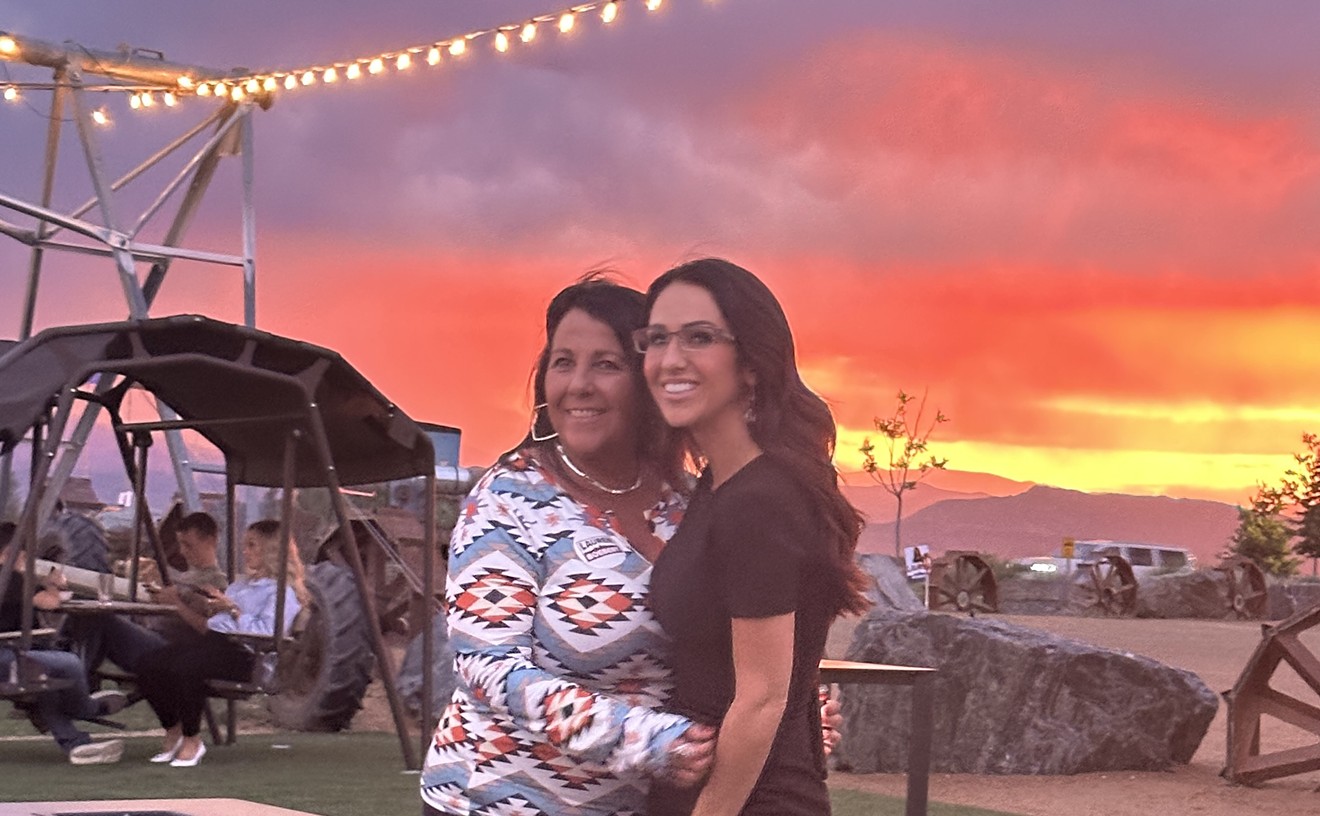Thanks to an ordinance passed by Denver City Council in June, many renters in Denver now have a right to a legal defense during eviction proceedings.
"Expanding the city's existing eviction legal defense program through this ordinance provides more renters than ever with a much-needed resource, especially right now when pandemic eviction and unemployment supports are being removed and when rental assistance is backlogged and difficult to access — all at the same time that the Delta variant is surging," says Councilwoman Candi CdeBaca, who co-sponsored the ordinance with Councilwoman Amanda Sawyer.
The ordinance, which took effect on September 1, will ensure that Denver renters making 80 percent or less of the area median income have access to legal representation from start to finish in eviction proceedings.
Eighty percent of the area median income in Denver is $54,950 for a one-person household, so any single-earner household earning below this income level is eligible for a legal defense.
Jack Regenbogen, a senior attorney with the Colorado Center on Law and Policy, calls the ordinance "an incredible milestone."
"It furthers due process in one of the most essential civil legal proceedings where people’s homes are at stake, and as a practical matter, it’s going to help reduce housing insecurity by ensuring that when tenants are facing loss of their home [they have] legal representation," says Regenbogen.
In Colorado and nationwide, tenants rarely have legal representation during eviction proceedings. The Colorado Center on Law and Policy and the Colorado Coalition for the Homeless studied eviction cases from 2001 to 2017 and found that landlords lawyered up in 89 percent of the cases, while tenants had legal counsel less than 1 percent of the time.
And whether someone has legal representation can make a huge difference in eviction proceedings.
Denver has had an eviction legal defense fund pilot in place since mid-2018, but owing to a lack of funding, the lawyers provided through that program have only been able to help a fraction of indigent individuals facing eviction. But the individuals served by that program in 2018 had largely positive results, according to Sawyer. Even though 70 percent still moved, they did not receive a judgment against them, and 28 percent wound up staying in their residences without a judgment; simply avoiding a judgment can be a major victory for someone's credit score. And only 2 percent did receive a judgment and had to leave their homes.
"I think that having people facing evictions have access to attorneys is incredibly important. The stakes in eviction cases are very high," says Megan O'Byrne, an attorney with Colorado Legal Services, which provides pro bono, City of Denver-funded legal assistance to indigent individuals and seniors in Denver who need to file an answer to an eviction complaint.
CdeBaca and Sawyer have requested that the administration of Mayor Michael Hancock earmark federal COVID emergency relief money to fund the program from the rest of 2021 through 2024. The two council reps estimate that when it's up and running, the program will cost approximately $4 million annually to operate.
"We have free eviction legal assistance available with four providers and are continuing to look for additional ways to expand the work through budget requests in 2022," says Sabrina Allie of the Department of Housing Stability, which is overseeing the program. The City of Denver has so far allocated $1 million to eviction legal defense from CARES Act money, and more money could be coming from American Rescue Plan Act dollars.
"Obviously, with additional resources, there will be more that we can do," O'Byrne says. "In cities that have implemented a right to counsel in eviction proceedings, evictions have gone down drastically."
The timing of the eviction legal defense ordinance taking effect is fortuitous for renters in Denver. In late August, the U.S. Supreme Court struck down a partial eviction moratorium crafted by the Centers for Disease Control and Prevention. And COVID-related federal unemployment benefits, which have been a lifeline to many in Colorado, end September 4, meaning plenty of those who have been struggling to make ends meet could soon be facing eviction.
"It’s grim. It’s just very scary. People are terrified," says Regenbogen. "The additional unemployment benefits have been a real lifesaver both figuratively and literally for people."
Thanks to Senate Bill 173, which was spearheaded by Denver metro state lawmakers this past legislative session, Colorado renters have some rights to fight evictions. And Governor Jared Polis just extended an order that requires landlords to provide thirty days of notice, rather than the usual ten days, before evicting a tenant.
In the future, there may be even more funding for eviction legal defense in Denver. The No Eviction Without Representation Denver campaign is seeking to establish a universal right to eviction legal defense, regardless of income level; the plan calls for a dedicated stream of funding from a $75-per-rental-unit tax to be paid by landlords. The campaign estimates this tax could generate up to $12 million in its first year.
While proponents of the initiative had initially aimed to land it on the 2021 ballot, they've since opted to try for the 2022 ballot. They now have until September 20 to submit 9,184 valid signatures.
More information on how to access legal defense in eviction proceedings in Denver can be found here.
[
{
"name": "Air - MediumRectangle - Inline Content - Mobile Display Size",
"component": "12017618",
"insertPoint": "2",
"requiredCountToDisplay": "2",
"watchElement": ".fdn-content-body",
"astAdList": [
{
"adType": "rectangle",
"displayTargets": "mobile"
}
]
},{
"name": "Editor Picks",
"component": "17242653",
"insertPoint": "4",
"requiredCountToDisplay": "1",
"watchElement": ".fdn-content-body",
"astAdList": [
{
"adType": "rectangle",
"displayTargets": "desktop|tablet"
},{
"adType": "rectangle",
"displayTargets": "desktop|tablet|mobile"
}
]
},{
"name": "Inline Links",
"component": "18838239",
"insertPoint": "8th",
"startingPoint": 8,
"requiredCountToDisplay": "7",
"maxInsertions": 25
},{
"name": "Air - MediumRectangle - Combo - Inline Content",
"component": "17261320",
"insertPoint": "8th",
"startingPoint": 8,
"requiredCountToDisplay": "7",
"maxInsertions": 25,
"watchElement": ".fdn-content-body",
"astAdList": [
{
"adType": "rectangle",
"displayTargets": "desktop|tablet"
},{
"adType": "rectangle",
"displayTargets": "desktop|tablet|mobile"
}
]
},{
"name": "Inline Links",
"component": "18838239",
"insertPoint": "8th",
"startingPoint": 12,
"requiredCountToDisplay": "11",
"maxInsertions": 25
},{
"name": "Air - Leaderboard Tower - Combo - Inline Content",
"component": "17261321",
"insertPoint": "8th",
"startingPoint": 12,
"requiredCountToDisplay": "11",
"maxInsertions": 25,
"watchElement": ".fdn-content-body",
"astAdList": [
{
"adType": "leaderboardInlineContent",
"displayTargets": "desktop|tablet"
},{
"adType": "tower",
"displayTargets": "mobile"
}
]
}
]












